![Bailey, Derek: Lot 74 [VINYL] (Honest Jons Records) Bailey, Derek: Lot 74 [VINYL] (Honest Jons Records)](https://www.teuthida.com/productImages/misc4/25649.jpg)
An impressive vinyl reissue of guitarist Derek Bailey, one of the most unique and influential free improvisers, in his 1974 solo recording on the Incus label, with Bailey playing on two amps and two volume pedals, a veritable duo split in the stereo field with occasional banter and observations, as he blends abstract and lyrical approaches on guitar in amazing ways.
Out of Stock
Quantity in Basket: None
Log In to use our Wish List
Shipping Weight: 24.00 units
Sample The Album:
Derek Bailey-guitar
Click an artist name above to see in-stock items for that artist.
UPC: 769791969094
Label: Honest Jons Records
Catalog ID: HJR 203LP
Squidco Product Code: 25649
Format: LP
Condition: New
Released: 2018
Country: UK
Packaging: LP
All recordings spring 1974 except "Improvisation 104(b). Recording by Bob Woolford and Martin Davidson recorded at Martin Davidson's house in South-East London. Originally released on vinyl as Incus LP 12.
"A reissue of Derek Bailey's Lot 74, originally released by Incus in 1974. Recorded at a private house in South-East London [Martin Davidson], the side-long title track is a masterwork: a twenty-two-minute, starkly personal, freely expressive, itchily searching re-casting of orders of rhythm and sound into a new, quicksilver kind of affective and musical polyphony.
Never mind the guitarist's championing of "non-idiomatic improvisation", the poet Peter Riley gets the ball rolling in his identification of the various hauntings of Bailey's playing at this time: "mandolins & balalaikas strumming in the distance, George Forby's banjo, Leadbelly's steel 12-string, koto, lute, classical guitar... and others quite outside the field of the plucked string."
The five pieces on side two were recorded back home in Hackney around the same time -- with the exception of "Improvisation 104(b)", from the year before (and issued by Incus in its TAPS series of mini reel-to-reel tapes) -- opening with ventriloquized guitar feedback, and taking in some cod banter about colleagues like Mervyn Parker, Siegfried Brotzmann, and Harry Bentink. Crucial."-Honest Jons Records
"Lot 74 was originally issued as Incus 12 in 1974, and was only the fourth solo recording Derek Bailey released, after the two volumes of Solo Guitar and the reel-to-reel tape release TAPS. Little of the solo language of the consummate free improviser had yet been documented at the time, and to those mail ordering copies of the LP it must have been a revelation - or a conundrum.
The album is no less surprising today. Before long, Bailey would refine his playing to rely primarily on plectrum technique with harmonics and muted strings, but in the early '70s there was a different sense of adventurousness about him. The "19 string (approx) guitar" isn't heard here, but his deft stereo playing is. Splitting the signal from his electric guitar, Bailey played with two amps and two volume pedals, allowing him to create distinct left and right fields. That, of course, is just a tool, however, and it's Bailey's contrary ingenuity that makes the panned plucking work.
The 22-minute title track that opens the disc is all of what makes his solo playing so great. It's lyrical, more in a spoken than sung way. It moves forward with rationale, is sometimes light but never quite goes for a joke. Cliché though it may be to say, Bailey is a storyteller: linear and engaging. In hindsight, what would have been called "side two" back in the day is even more of a shocker. The brief "Together" opens the side, an intense blur of singing, or whooping in any event accompanied by feedback (he seems to be singing into the guitar pickup to get overtones and distortion). "Pain in the Chest?" is built of shards emanating from (seemingly again) prepared strings. "Planks" is a sort of spidery ballad, which is followed by a spoken piece called "In Joke (take 2)." Bailey's so-called "chats" became better known (and more frequently recorded) in later years, but this is an early example of his conversational cacophony: him ruminating cheekily on the early days (less than a decade prior at the time) of free improvisation, presaging the Charlie Appleyard stories he would later record. Hearing Bailey accompany himself - speaking while drowning himself out with rigid, angular guitar lines - is one of the best keys to unlocking his enigmatic music. The disc closes with another rich amplified piece (curiously this one gets titled "Improvisation").
As his approach to playing grew increasingly singular, his sonic palate became less of a rainbow. Arguably the depth of his musicianship also grew, Lot 74 is rare in his catalogue as a series of attempts and for the resultant diversity."-Kurt Gottschalk, The Squid's Ear
All recordings spring 1974 except "Improvisation 104(b). Recording by Bob Woolford and Martin Davidson recorded at Martin Davidson's house in South-East London. Originally released on vinyl as Incus LP 12.
Derek Bailey-guitar

The Squid's Ear!
Get additional information at The Squid's Ear
Artist Biographies
• Show Bio for Derek Bailey "Derek Bailey (29 January 1930 - 25 December 2005) was an English avant-garde guitarist and leading figure in the free improvisation movement. Bailey was born in Sheffield, England. A third-generation musician, he began playing the guitar at the age of ten, initially studying music with his teacher and Sheffield City organist C. H. C. Biltcliffe, an experience that he did not enjoy, and guitar with his uncle George Wing and John Duarte. As an adult he worked as a guitarist and session musician in clubs, radio, dance hall bands, and so on, playing with many performers including Morecambe and Wise, Gracie Fields, Bob Monkhouse and Kathy Kirby, and on television programs such as Opportunity Knocks. Bailey's earliest foray into 'what could be called free improvised music' was in 1953 with two other guitarists in their shared flat in Glasgow. He was also part of a Sheffield-based trio founded in 1963 with Tony Oxley and Gavin Bryars called "Joseph Holbrooke" (named after the composer, whose work they never actually played). Although originally performing relatively "conventional" modal, harmonic jazz this group became increasingly free in direction. Bailey moved to London in 1966, frequenting the Little Theatre Club run by drummer John Stevens. Here he met many other like-minded musicians, such as saxophonist Evan Parker, trumpet player Kenny Wheeler and double bass player Dave Holland. These players often collaborated under the umbrella name of the Spontaneous Music Ensemble, recording the seminal album Karyobin for Island Records in 1968. In this year Bailey also formed the Music Improvisation Company with Parker, percussionist Jamie Muir and Hugh Davies on homemade electronics, a project that continued until 1971. He was also a member of the Jazz Composer's Orchestra and Iskra 1903, a trio with double-bass player Barry Guy and tromboneist Paul Rutherford that was named after a newspaper published by the Russian revolutionary Vladimir Lenin. In 1970, Bailey founded the record label Incus with Tony Oxley, Evan Parker and Michael Walters. It proved influential as the first musician-owned independent label in the UK. Oxley and Walters left early on; Parker and Bailey continued as co-directors until the mid-1980s, when friction between the men led to Parker's departure. Bailey continued the label with his partner Karen Brookman until his death in 2005[citation needed]. Along with a number of other musicians, Bailey was a co-founder of Musics magazine in 1975. This was described as "an impromental experivisation arts magazine" and circulated through a network of like-minded record shops, arguably becoming one of the most significant jazz publications of the second half of the 1970s, and instrumental in the foundation of the London Musicians Collective. 1976 saw Bailey instigate Company, an ever-changing collection of like-minded improvisors, which at various times has included Anthony Braxton, Tristan Honsinger, Misha Mengelberg, Lol Coxhill, Fred Frith, Steve Beresford, Steve Lacy, Johnny Dyani, Leo Smith, Han Bennink, Eugene Chadbourne, Henry Kaiser, John Zorn, Buckethead and many others. Company Week, an annual week-long free improvisational festival organised by Bailey, ran until 1994. In 1980, he wrote the book Improvisation: Its Nature and Practice. This was adapted by UK's Channel 4 into a four-part TV series in the early '90s, edited and narrated by Bailey. Bailey died in London on Christmas Day, 2005. He had been suffering from motor neurone disease." ^ Hide Bio for Derek Bailey
4/9/2025
Have a better biography or biography source? Please Contact Us so that we can update this biography.
Track Listing:
SIDEA
1. Lot 74 22:26
SIDEB
1. Together 2:03
2. Pain In The Chest 3:02
3. Planks 4:09
4. In Joke (Take 2) 3:38
5. 104b 5:39
Vinyl Recordings
Improvised Music
Free Improvisation
London & UK Improv & Related Scenes
Bailey, Derek
Guitarists, &c.
Solo Artist Recordings
Jazz Reissues
Staff Picks & Recommended Items
Search for other titles on the label:
Honest Jons Records.

![Bailey, Derek: Lot 74 [VINYL] (Honest Jons Records) Bailey, Derek: Lot 74 [VINYL] (Honest Jons Records)](https://www.teuthida.com/productImages/full/25649.Full.jpg)
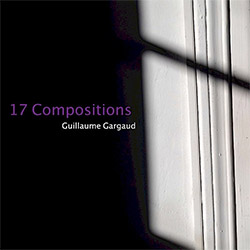
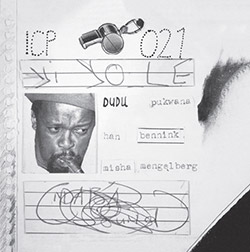
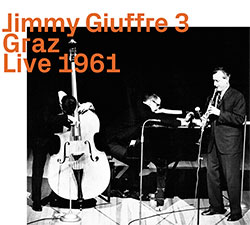



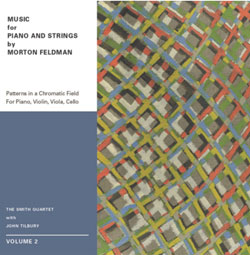
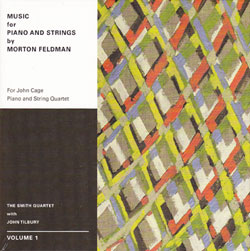




![111 (Michelle / Villamil): Live at Opus 40 [CASSETTE]](https://www.teuthida.com/productImages/misc4/35986.jpg)
![del Pino, Francisco / Charlotte Mundy: The Sea [CASSETTE]](https://www.teuthida.com/productImages/misc4/35987.jpg)

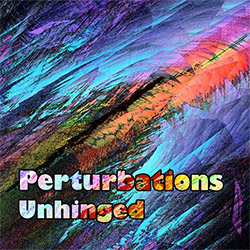


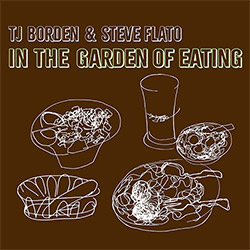

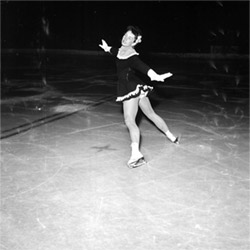


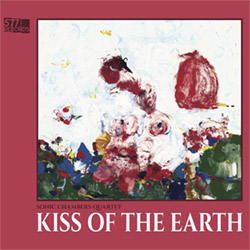

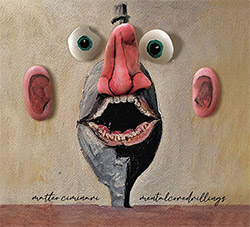

![Niblock, Phill / Anna Clementi / Thomas Stern: Zound Delta 2 [VINYL]](https://www.teuthida.com/productImages/misc4/34623.jpg)
![Yoko, Ono / The Great Learning Orchestra: Selected Recordings From Grapefruit [2 CDs]](https://www.teuthida.com/productImages/misc4/35841.jpg)

![Brotzmann, Peter / John Edwards / Steve Noble / Jason Adasiewicz: The Quartet [2 CDs]](https://www.teuthida.com/productImages/misc4/35975.jpg)
![Brotzmann, Peter / John Edwards / Steve Noble / Jason Adasiewicz: The Quartet [VINYL 2 LPs]](https://www.teuthida.com/productImages/misc4/35976.jpg)
![Thomas, Pat: The Solar Model of Ibn-Al Shatir [VINYL]](https://www.teuthida.com/productImages/misc4/36044.jpg)
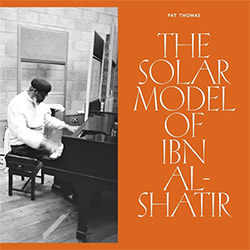



![Rodrigues, Ernesto / Nuno Torres / Guilherme Rodrigues: Whispers In The Moonlight - In Seven Movements [2CDs]](https://www.teuthida.com/productImages/misc4/35765.jpg)



![Cocks, Laura: FATHM [VINYL]](https://www.teuthida.com/productImages/misc4/36055.jpg)













![Schindler, Udo / Sandy Ewen / Damon Smith: Munich Sound Studies Vols. 4, 5 & 6 [3 CDs]](https://www.teuthida.com/productImages/misc4/35966.jpg)
![Turbulence Orchestra & Sub-Units: Smear Out the Difficulties (Double Live) [2 CDs]](https://www.teuthida.com/productImages/misc4/36048.jpg)

![Myers, David Lee : Tin Drop Tear [BOOK w/ DOWNLOAD]](https://www.teuthida.com/productImages/misc4/36030.jpg)

![Ackerley / Prymek / Turner: All Hope With Sleeping Minds [CASSETTE]](https://www.teuthida.com/productImages/misc4/35950.jpg)








![Olencki, Weston : Pearls Ground Down To Powder [VINYL]](https://www.teuthida.com/productImages/misc4/35956.jpg)
![Myers, David Lee: Oculus [2CDs]](https://www.teuthida.com/productImages/misc4/35857.jpg)


![dustsceawung: dustsceawung [CASSETTE w/ Download]](https://www.teuthida.com/productImages/misc4/35753.jpg)




![Halls of the Machine: Atmospheres For Lovers And Sleepers [CASSETTE w/ DOWNLOAD]](https://www.teuthida.com/productImages/misc4/35806.jpg)











![Zorn, John / JACK Quartet: The Complete String Quartets [2 CDs]](https://www.teuthida.com/productImages/misc4/35609.jpg)

![Lonsdale, Eden: Dawnings [2 CDs]](https://www.teuthida.com/productImages/misc4/35480.jpg)







![Sanna, Claudio: Compositori Sardi Contemporanei II [2 CDs]](https://www.teuthida.com/productImages/misc4/35317.jpg)







![Zurria, Manuel: Fame di Vento [3 CDs]](https://www.teuthida.com/productImages/misc4/35167.jpg)

![Electric Bird Noise / Derek Roddy: 8-10-22 [CD EP]](https://www.teuthida.com/productImages/misc4/35970.jpg)








![Elephant9 : Mythical River [VINYL]](https://www.teuthida.com/productImages/misc4/34624.jpg)



![Elephant9 with Terje Rypdal: Catching Fire [VINYL 2 LPs]](https://www.teuthida.com/productImages/misc4/35355.jpg)
![Deerlady (Obomsawin, Mali / Magdalena Abrego): Greatest Hits [VINYL]](https://www.teuthida.com/productImages/misc4/34876.jpg)







![Surplus 1980: Illusion of Consistency [CD]](https://www.teuthida.com/productImages/misc4/35069.jpg)
![Staiano, Moe: Away Towards the Light [VINYL + DOWNLOAD]](https://www.teuthida.com/productImages/misc4/35037.jpg)



![Caveira (Gomes / Sousa / Abras / Ferrandini): Ficar Vivo [VINYL]](https://www.teuthida.com/productImages/misc4/34643.jpg)
![Coley, Byron: Dating Tips for Touring Bands [VINYL]](https://www.teuthida.com/productImages/misc4/17906.jpg)

![Lost Kisses: My Life is Sad & Funny [DVD]](https://www.teuthida.com/productImages/misc4/lostKissesDVD.jpg)